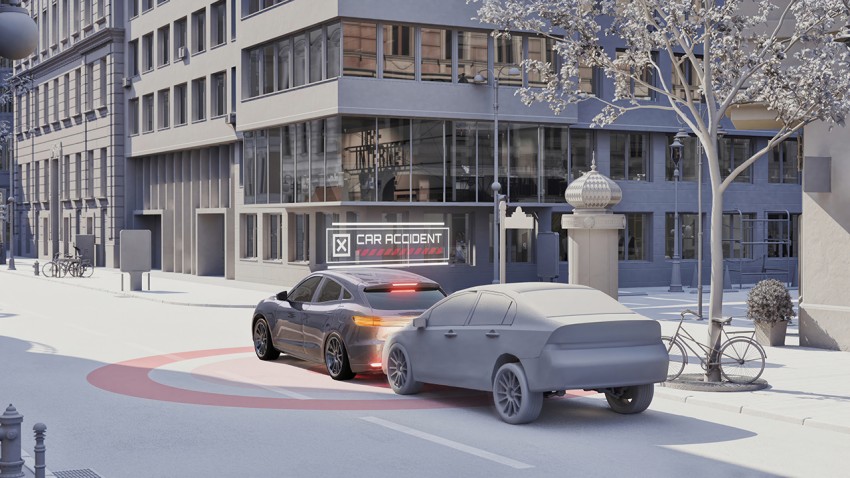Science
Researchers Unveil Path to Improve Autonomous Vehicle Safety Data Sharing

While autonomous vehicles (AVs) have been in trial as taxis for decades in cities like San Francisco and Pittsburgh, companies are often reluctant to share crucial crash and safety data that could enhance vehicle safety. A team of researchers from Cornell University argues that with strategic adjustments, sharing this data can benefit both the public and the companies involved.
Barriers to Data Sharing in Autonomous Vehicle Companies
The research team, which presented their findings on October 16, 2023, at the ACM on Human-Computer Interaction, highlights that the core of competition in the AV market revolves around access to safety data. According to Hauke Sandhaus, a doctoral candidate at Cornell Tech and co-author of the study titled “My Precious Crash Data,” making this data transparent is essential for enhancing public safety rather than merely serving corporate interests. He stated, “Once you have that data, it’s much easier for you to train your AI to not make that error.”
The researchers interviewed 12 employees from various AV companies responsible for safety design and deployment. Their findings revealed a surprising variety of approaches among companies toward the management and sharing of safety data. Sandhaus remarked, “Everyone really has some niche, homegrown data set, and there’s really not a lot of shared knowledge between these companies.”
Two major barriers to data sharing emerged from the interviews. The first relates to the political nature of data sharing within these companies, which often involves proprietary machine-learning models and infrastructure. The second barrier is the belief that safety knowledge offers a competitive edge, leading companies to view this knowledge as private rather than a resource for public benefit. As the researchers noted, “This perspective leads them to view safety knowledge embedded in data as a contested space rather than public knowledge for social good.”
Proposed Solutions for Enhanced Data Transparency
Current regulations in the United States and Europe only require companies to report basic information about crashes, such as the month they occurred and whether injuries were involved. This limited data fails to address critical factors that can lead to accidents, such as sudden obstacles or adverse weather conditions. To foster a culture of data sharing, the researchers suggest clarifying the distinction between proprietary and public safety knowledge.
One recommended approach is for AV companies to share general information about accidents without disclosing sensitive raw data, such as video footage that reveals technical infrastructure. Additionally, companies could develop standardized “exam questions” that AVs must pass before being allowed on the road. Sandhaus proposed, “If you have pedestrians coming from one side and vehicles from the other side, then you can use that as a test case that other AVs also have to pass.”
Academic institutions could serve as intermediaries, facilitating strategic collaborations that allow AV companies to share critical safety data without making their entire datasets public. According to co-author Qian Yang, there are existing collaboration patterns between academic institutions and industry partners that can be leveraged for this purpose.
Furthermore, the research team advocates for the standardization of AV safety assessments through more effective government regulations. For example, the creation of a virtual city as a testing ground, equipped with busy intersections and pedestrian-heavy areas, could serve as a universal benchmark for AV algorithms. Yang suggested that federal regulators could encourage companies to contribute specific scenarios to this testing environment, which would help ensure that AVs are adequately prepared for real-world challenges.
The research was supported by the National Science Foundation and Schmidt Futures, emphasizing the need for practical policy solutions in the near future to improve the safety of autonomous vehicles.
-

 Technology5 months ago
Technology5 months agoDiscover the Top 10 Calorie Counting Apps of 2025
-

 Health2 months ago
Health2 months agoBella Hadid Shares Health Update After Treatment for Lyme Disease
-

 Health3 months ago
Health3 months agoErin Bates Shares Recovery Update Following Sepsis Complications
-

 Technology4 months ago
Technology4 months agoDiscover How to Reverse Image Search Using ChatGPT Effortlessly
-

 Technology1 month ago
Technology1 month agoDiscover 2025’s Top GPUs for Exceptional 4K Gaming Performance
-

 Technology2 months ago
Technology2 months agoElectric Moto Influencer Surronster Arrested in Tijuana
-

 Technology5 months ago
Technology5 months agoMeta Initiates $60B AI Data Center Expansion, Starting in Ohio
-

 Technology5 months ago
Technology5 months agoRecovering a Suspended TikTok Account: A Step-by-Step Guide
-

 Health4 months ago
Health4 months agoTested: Rab Firewall Mountain Jacket Survives Harsh Conditions
-

 Lifestyle5 months ago
Lifestyle5 months agoBelton Family Reunites After Daughter Survives Hill Country Floods
-

 Technology4 months ago
Technology4 months agoHarmonic Launches AI Chatbot App to Transform Mathematical Reasoning
-

 Technology3 months ago
Technology3 months agoUncovering the Top Five Most Challenging Motorcycles to Ride




















